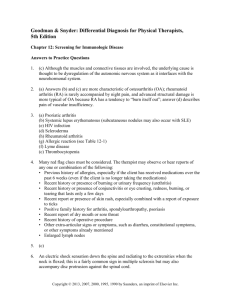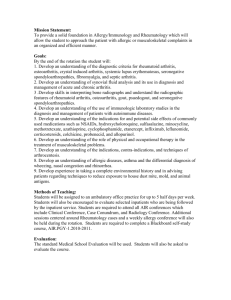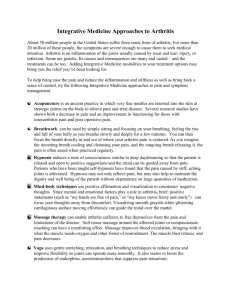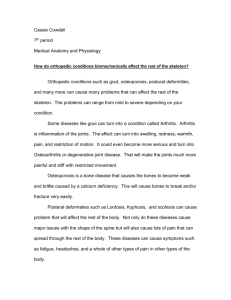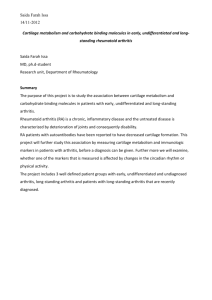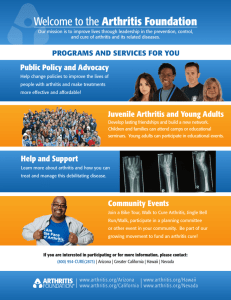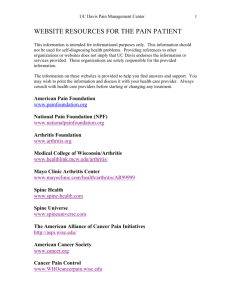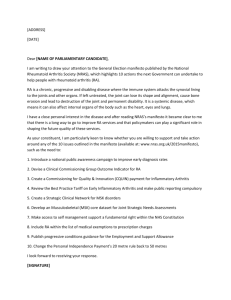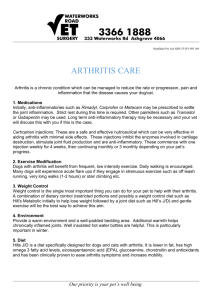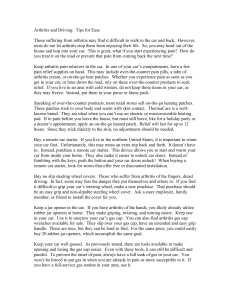Does cold weather worsen arthritis?
advertisement
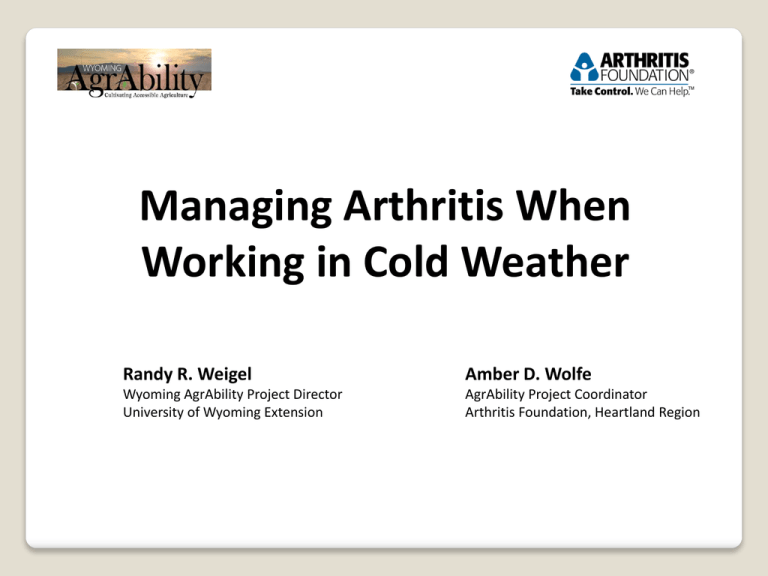
Managing Arthritis When Working in Cold Weather Randy R. Weigel Amber D. Wolfe Wyoming AgrAbility Project Director University of Wyoming Extension AgrAbility Project Coordinator Arthritis Foundation, Heartland Region “Stay inside, walk in a local mall, or consider a three month vacation to a warmer climate.” A leading rheumatologist’s advice Does cold weather worsen arthritis? • Research is unclear and contradictory • Limitations of research studies—self-reporting, small sample size, inconsistent design, uncontrolled variables, uniqueness of pain, type of arthritis Possible explanations for increased pain Physiological – falling barometer, vasoconstriction Physical – inactivity Psychological – winter drop in mood, selffulfilling prophecy Percentage of chronic pain patients reporting symptom complaints influenced by weather conditions. N = 70 Joint stiffness – 82% Muscle ache/sore – 79% Trouble sleeping – 75% Muscle weakness – 74% Poor circulation – 72% Feel depressed – 67% Feel anxious – 64% Hot or cold spells – 59% Feel angry – 59% Headaches – 58% Poor appetite – 49% Upset stomach – 46% Trouble breathing – 42% Faintness – 41% Chest pains – 34% Shutty, M., Cundiff, G., & DeGood, D. (1992). Pain complaint and the weather: Weather sensitivity and symptom complaints in chronic pain patients. Pain, 49, 199-204. Cold is an occupational hazard in agriculture • Disease flare-ups • Increase in injuries • Strains and sprains • Breathing issues What is cold stress? Factors that increase danger from the cold Air movement Wetness Improper clothing Physical condition Tired or dehydrated Medical conditions Workers are at increased risk for cold stress due to… Extreme conditions Health risks Being unprepared Ease the pain in the home (what people with arthritis tell us) • • • • • Don’t scrimp on heat Plug in some warmth Preheat Loosen up Treat yourself Work safely in the cold Dressing for cold weather http://www.youtube.com/watch?feature=player _detailpage&v=yho7a_Nhed0 Additional considerations for ranchers and farmers with arthritis Safety at the work site • • • • • • • On-site source of heat Heated shelter/vehicle Reducing drafts Use thermal insulating materials Use thermal mats on cold floors Warm up equipment, machinery, tools Drive with care In summary: How to protect yourself and your workers 1. 2. 3. 4. 5. 6. 7. Train yourself and workers for the cold and changing weather. Adjust your work schedule to the cold and changing weather. Use a buddy system. Layer clothing. Wear complete personal protective equipment (PPE). Eat and drink hot or warm foods and liquids. Take steps to manage arthritis pain Additional Resources Cold Work Injuries in Agriculture Strategies for Prevention and Rehabilitation JTI-Swedish Institute of Agricultural and Environmental Engineering Purdue University Department of Agricultural and Biological Engineering Additional online resources Cold Environments – Working in the Cold Canadian Centre for Occupational Safety and Health http://www.ccohs.ca/oshanswers/phys_agents/cold_working.html Cold Stress Guide Occupational Safety and Health Administration https://www.osha.gov/SLTC/emergencypreparedness/guides/cold.html Working Safely in the Cold New Jersey Department of Health and Senior Services http://www.nj.gov/health/surv/documents/coldfact.pdf Cold-Related Conditions and Agriculture eXtension Ag Safety and Health http://www.extension.org/pages/66813/cold-related-conditions-and-agriculture Thank you!
